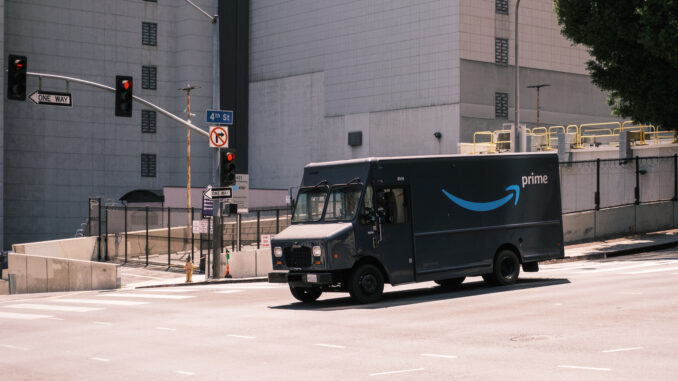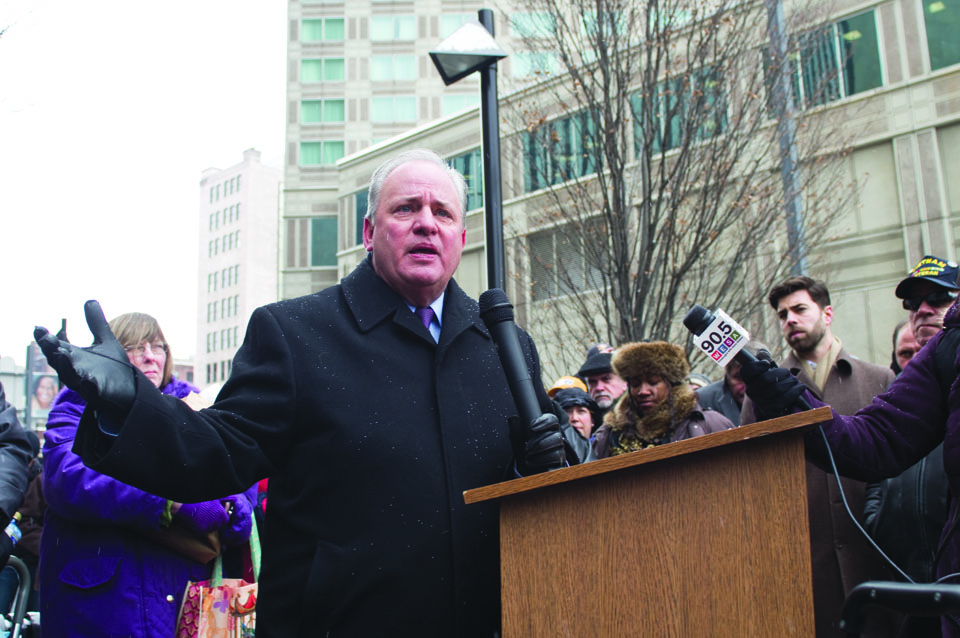
by Zachary Petroff | staff columnist
April 7, 2022
I will never forget when one of my closest mentors and father figure gave me a brief tour of Akron, Ohio. It was the day before Thanksgiving, and the dealership we worked for was playing against our rival dealership in a “friendly” football game. As we drove through the desolate part of the city, he made sure to point out all the run-down factories and abandoned buildings.
Half joking, he mentioned that the reason that the city had become so barren was due to “your people,” a phrase he often used when mentioning liberals. He informed me that the reason so many businesses left was because unions had caused the price of production to go up so high that it forced various businesses to leave town, leaving the city of Akron in an economic downfall.
Though it has been years, that conversation has stuck with me. He was a man of few words and someone I had grown to admire. He helped craft my views on leadership, professionalism and offered me guidance in a time of my life when I felt like I already knew everything. When he spoke, even if I did not heed his advice, I listened.
Upon reflection, I have come to understand his and many others’ stance on labor and labor rights. I do not believe it comes from a place of malice, but rather from a slew of misconceptions and archaic perceptions.
It’s brainwashing.
The way we view corporations, who have hoarded a massive amount of profit, seems almost satirical. Mitt Romney, during his campaign for presidency in 2008, made the claim that “corporations are people too.” In 2010, the Supreme Court ruled in a landmark decision that under the first amendment, corporations could contribute, and thus influence, without limitations, how much they give to political contributions. In 2016, we elected an under-qualified billionaire without any political experience to the highest office in the country.
We have a cult-like attitude when it comes to CEOs. We put men like Jeff Bezos, Elon Musk, Tim Cook and Steve Jobs on an adorative pedestal while often villainizing those in the workforce. Words like labor unions, socialism, strikes and profit-sharing are often met with disdain and distrust.
Labor is changing. It needs to change. For too long in this country corporations have exploited various members of the working class with low wages and unreasonable demands all while asking for their blind loyalty, which we have given to them willingly.
The work force is being asked to do more for less compensation in several sectors. This is most apparent when it comes to jobs where less qualifications are required: retail, the service industry and manufacturing employees are being asked to do more with stagnant compensation.
The U.S. Bureau of Labor Statistics has studied productivity trends from 1987-2015 finding that “the share of income going to workers has declined in 77% of industries since 1987…These industries also saw a large rise in output and productivity in this period, in contrast, labor share increased.”
The working class is being asked to do more for less. Wages have remained stagnant while wage inequality continues to grow. The right of the people to come together and have their voices heard is American. The right to collective bargaining allows the working class not only a voice, but a chance to be recognized and to put the power of industry back into the hands of the people. As legislation has failed to recognize the rights of workers, it is up to the people to come together and demand that various levels of exploitation need to be corrected.
The road for workers to gain their rightful share of profit will be a hard one. In 2020 we saw giant tech companies like Uber and Lyft spend a record $205 million to pass Proposition 22 in California, which allowed tech employers to categorize their workers as “independent contractors” instead of employees.
This allows the corporations to not have to pay for unemployment insurance, health care, sick leave and other responsibilities of an employer. Amazon spent $4.3 million on anti-union consultants last year alone. Other massive corporations such as Walmart and Starbucks have spent years cultivating a culture that slows or prevents the unionization of employees.
The monumental labor organization that occurred last Friday at the Amazon facility in Staten Island, N.Y. took two years. There were aggressive and even illegal tactics being deployed to stop the efforts. The trend of malicious attempts to deter workers from uniting will likely increase before sweeping changes occur.
We as Americans should embrace and ready ourselves for the right for the average worker to have a voice.



